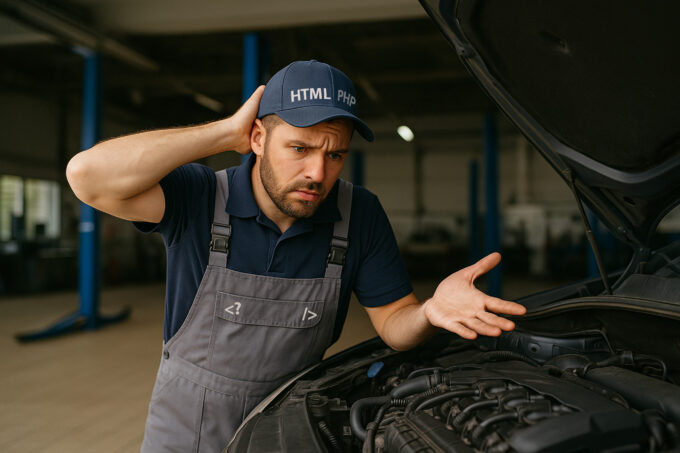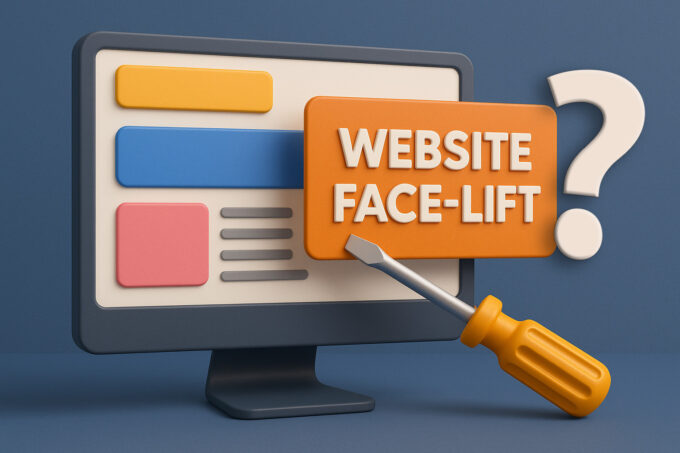WordPress powers over 40% of all websites on the internet, but it also frequently makes headlines for being “hacked” or “insecure.” So naturally, one of the most common questions we get is: Is WordPress safe to use?
The short answer? Yes—but only if it’s used the right way.
Just like any widely-used technology, WordPress can be a secure and reliable CMS, or a vulnerable mess—it depends on how it’s set up, maintained, and hosted. In this post, we’ll break down why WordPress has a bad security rep, what’s actually true, and how to keep your WordPress site safe and sound.
WordPress Core: A Solid Foundation
Let’s start with the platform itself.
WordPress Core—the software you install—is secure by design. It’s developed and maintained by a dedicated open-source community, led by the WordPress Security Team. This team includes experts from major tech companies like Google and Automattic (the creators of WordPress.com).
Core Security Features:
- Role-based access control – Only admins can make big changes.
- Sanitization and validation APIs – Help avoid malicious input.
- Automatic background updates – Keeps your site running the latest patched version.
- Nonce verification – Prevents common attack types like CSRF.
- Escaping mechanisms – Blocks XSS attacks when coded properly.
In simpler terms? WordPress has a bunch of built-in tools that help prevent bad actors from injecting dangerous code or getting into parts of your website they shouldn’t. When updated regularly, WordPress core is very secure.
WordPress Themes: Free, Paid, or Custom?
Themes determine how your WordPress site looks and behaves, and they’re a common source of vulnerabilities—especially when outdated or poorly built.
Free Themes
Many free themes are abandoned or never updated, which is dangerous. That said, default themes (like Twenty Twenty-Four) that ship with WordPress are professionally maintained and totally safe to use.
Premium (Paid) Themes
These are usually better maintained and regularly updated. Look for:
- Strong user reviews
- Active changelogs
- Developer support
Pair your premium theme with a child theme so your custom changes don’t get overwritten when the parent theme is updated.
Custom Themes
The gold standard—if done by a professional. A well-coded custom theme includes:
- Only the features you need (reducing attack surface)
- Smaller codebase (easier to secure and debug)
- Known architecture (faster updates or fixes)
If you’re serious about performance and security, a custom-built theme is often the best investment.
WordPress Plugins: Extend Carefully
Plugins add features like forms, sliders, SEO, and more—but they’re also the #1 cause of WordPress vulnerabilities.
Here’s the breakdown:
Free Plugins
Useful, but often unmaintained. Avoid plugins with:
- Few downloads
- No recent updates
- Poor ratings
Premium Plugins
These are developed professionally, come with support, and often go through regular security reviews. Some well-known plugins (like Yoast SEO, WP Rocket, Gravity Forms) are excellent choices.
Custom Plugins
For niche needs, custom plugins are ideal. Like custom themes, they only include essential features, minimizing potential vulnerabilities. They’re easy to maintain when developed by professionals.
Hosting Matters: Self-Hosted vs Managed WordPress Hosting
Your hosting provider plays a huge role in WordPress security.
Self-Hosted WordPress (DIY)
Pros:
- Full control
- Lower monthly cost
Cons:
- You handle everything: updates, security patches, backups
- Easier to misconfigure
Managed WordPress Hosting
Pros:
- Automatic updates
- Built-in security features (firewalls, malware scanning)
- Daily backups
- Expert support
Cons:
- Higher cost (but worth it for peace of mind)
If security isn’t your forte, managed hosting is the way to go.
Backups & Updates: The Unsung Heroes
Even the most secure website is never 100% invulnerable. That’s why frequent backups and auto-updates are your best safety nets.
What to do:
- Set up daily backups
- Enable auto-updates for plugins and themes (when possible)
- Use a plugin like UpdraftPlus or rely on your host’s backup solution
Final Verdict: Is WordPress Safe?
WordPress is as secure as you make it. The platform itself is not the problem—it’s outdated themes, insecure plugins, poor hosting, and a lack of maintenance that lead to trouble.
To stay secure:
- Use trusted themes and plugins
- Keep everything updated
- Choose a secure host
- Invest in custom development when possible
- Regularly back up your site
With the right setup and a bit of ongoing care, WordPress can be one of the safest, most powerful platforms for building your website.



